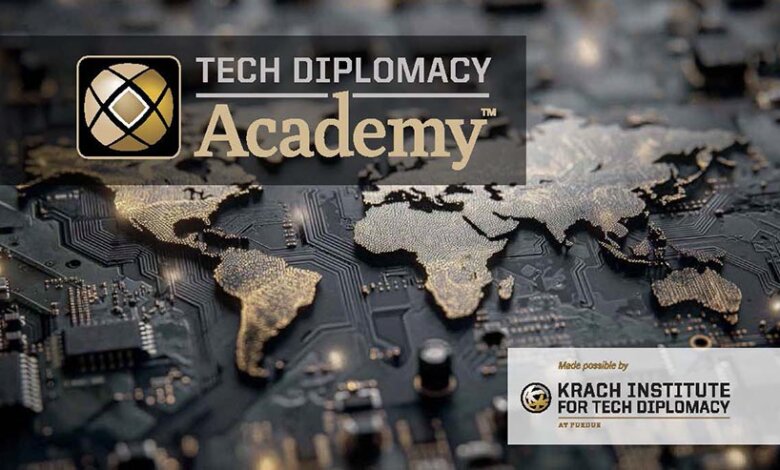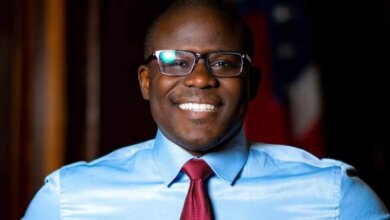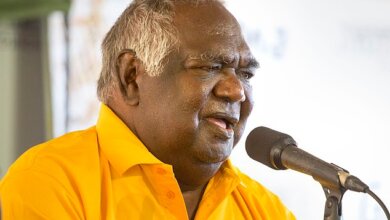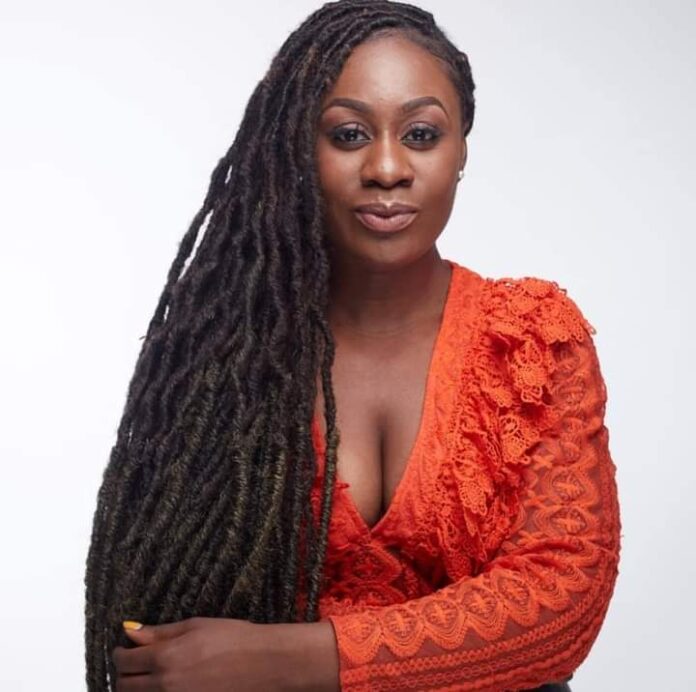Krach Institute to host ‘Tech Diplomacy Roundtable’ in D.C.

Krach Institute for Tech Diplomacy at Purdue will host a pivotal event in Washington, D.C., titled “Tech Diplomacy High-Level Roundtable: Advancing Trusted Technology in Africa,” on May 28. The roundtable wants to hold strategic dialogue on advancing trusted technology adoption across Africa.
Scheduled from 2:00 to 4:30 PM EST at the Institute’s office at 1301 K Street NW, the exclusive gathering will bring together senior leaders, including African ambassadors, U.S. policymakers, tech innovators, entrepreneurs, and academic experts. A networking reception will follow, offering opportunities for lasting partnerships.
The event is in partnership with broader initiatives like the Year of Return Africa (YORA), which encourages diaspora engagement and investment in Africa’s development. By leveraging technology for economic growth, the roundtable will build on efforts to strengthen U.S.-Africa ties and promote sustainable progress.
The Institute, which is a global authority in tech diplomacy, is renowned for its mission to accelerate the innovation and adoption of trusted technologies. Founded by Keith Krach, former U.S. Under Secretary of State, and Mung Chiang, President of Purdue University, the Institute integrates cutting-edge technology expertise, Silicon Valley strategies, and foreign policy tools to build the Global Trusted Tech Network.
The roundtable will focus on three key areas:
- Shared Priorities for Secure Technology Ecosystems: Participants will discuss strategies to safeguard critical technologies, such as AI, quantum computing, and semiconductors, from techno-authoritarian influence.
- The Global Trusted Tech (xGTT) Standard: Introduced at the 2024 Trusted Tech Summit, this framework, led by Taiwan’s Cyber Ambassador-at-Large Audrey Tang, defines and labels trusted technology to enable secure, seamless collaboration across borders. The roundtable will explore how the xGTT Standard can be applied in Africa to enhance digital trust.
- Actionable Pathways for Digital Sovereignty and Innovation: The discussion will identify practical steps to empower African nations to control their digital futures, drive economic growth, and foster innovation through trusted technology adoption.
Moderated by senior Krach Institute leaders, including CEO Michelle Giuda, the event will lay the groundwork for future U.S.-Africa collaborations in technology and security.
Giuda, a former Assistant Secretary of State, has emphasized the urgency of ensuring technology advances freedom, stating, “In an era where every advancement in technology becomes a battleground between freedom and authoritarianism, we must equip leaders to compete at speed and scale.”
The Institute’s online education platform, Tech Diplomacy Academy, has already been adopted by NATO’s Defense Innovation Accelerator (DIANA) and the U.S. Department of State. The academy offers concise, self-paced courses on topics like AI, quantum computing, semiconductors, and biotechnology. These courses, designed to fit busy schedules, equip professionals with the knowledge to navigate the geopolitical implications of technology.
The Institute plans to expand this training to African embassies and ministries, empowering diplomats and policymakers to champion trusted technology adoption. By building capacity in tech diplomacy, the Academy ensures African leaders are well-equipped to address challenges like cybersecurity, data privacy, and digital infrastructure development.
As Giuda noted at the 2024 Trusted Tech Summit, “What we need is a common vision: a future where technology creates the safest, freest, and most prosperous era in human history.”
To confirm your participation, email Peter Kegode at pkegode@yearofreturnafrica.com, Strategy & Partnerships Director, YORA; or email Janice DeGarmo at JLdeGarmo@prf.org, on behalf of the Krach Institute for Tech Diplomacy at Purdue.
Written by Abeeb Lekan Sodiq.

Abeeb Lekan Sodiq is the Managing Editor of theafricandream.net, a pan-African news website subsidiary of US-based TheAfricanDream LLC. He is also a Human Resource Practitioner, and a freelance Graphics Designer. He has worked with prominent personalities, including ambassadors, secretariats, international organisations, universities, celebrities, NGO, and media firms.





